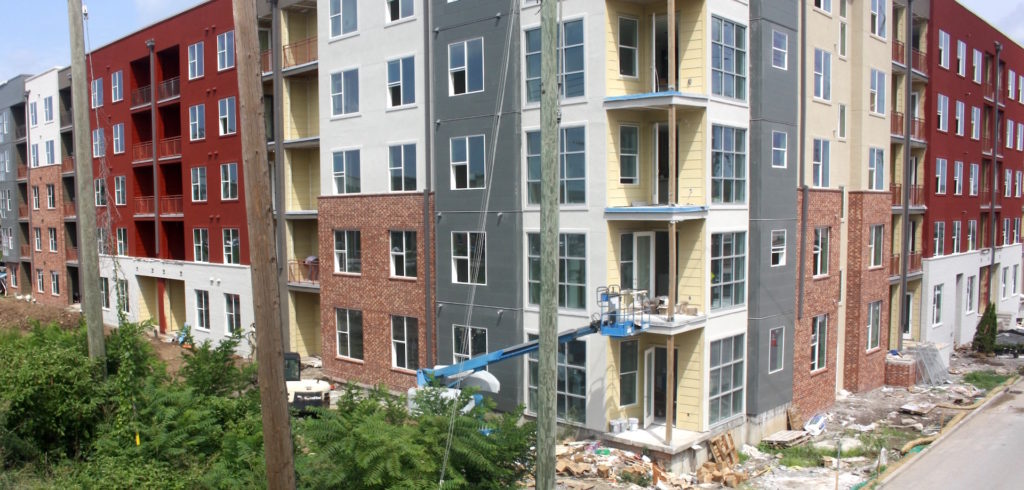
Affordable housing — it’s the subject Nashvillians cannot hide from in the past year, with widespread thinking that something should be done about rising prices and changing neighborhoods. Now, after months of study, several proposals are on paper and ready to be debated.
To sort out the differences, WPLN’s Tony Gonzalez tries to explains the policies in 90 seconds:
And if that’s not enough, a synopsis of the current proposals follows. But first, a quick definition of “affordable housing.” That term typically applies to residents who make, at most, 60 percent of the median household income, or roughly $36,000 a year in Davidson County.
Another term is “workforce housing.” That’s for professionals like police and teachers who make around the median income of $60,000 for a family four.
The proposals apply to both affordable and workforce categories.
(Catch up on WPLN’s
continuing coverage of affordable housing.)
Proposal: Inclusionary Zoning
As written,
this regulation says any developer of apartments or multiple homes who wants special permission to build bigger or more densely than zoning allows, must also create affordable housing on that site or nearby.
Builders would meet the requirement by setting aside between 7.5 and 15 percent of the units for lower-income residents, whose earnings would be verified. The specifics depend on the project’s size and the type of housing.
Proposal: Housing Grants
The second idea comes directly from the mayor’s office, which wants to
create a pool of grant money worth $2 million.
Developers who agree to keep their units below the market rate could apply to the city to get some of the funding. The intent is to let them make up the difference for what they could otherwise be charging in rent on the open market.
Hearings And Votes Scheduled
The two ideas are not seen as competing, but rather different ways to try to encourage or mandate the building of more affordable homes. And the bills target the urban neighborhoods that suddenly have hot real estate, and where working-class residents have been displaced.
Both plans would need to be approved by Metro Council.
There will be public hearings and debate. So far, there’s been more pushback on inclusionary zoning — although that method also has months of commitment and study from its sponsors.
A
bill from Councilwoman Sheri Weiner takes yet another approach, suggesting that a portion of property taxes from new housing developments be forwarded into the city’s Barnes Housing Trust Fund, where the funds could be used for future grants to build other units.
In the meantime, other housing bills are also percolating before the council, including a request for the mayor’s office to create
a “comprehensive” plan for affordability, which would draw from at least five often-cited local studies.
A specially called meeting hosted by the Metro Planning commission will discussion inclusionary zoning at 4 p.m. Thursday at the Midtown Hills police precinct, 1441 12th Ave. S.


